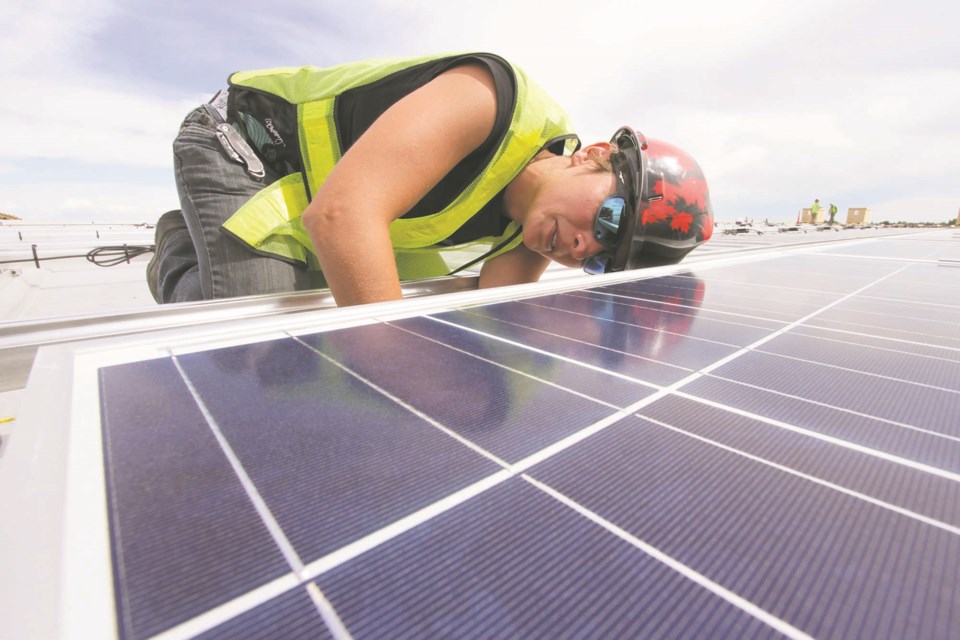Alberta residents will have to pay up to a dollar more for PlayStations as of next April as the province makes its electronics recycling pilot a permanent program.
Alberta Environment and Protected Areas Minister Rebecca Schulz announced Aug. 13 that the province would add about 500 items to its electronics recycling program as of next April.
Prior to 2020, the only electronic devices accepted for recycling in Alberta were computers, printers, scanners, photocopiers, and fax machines. Other electronic devices, and the valuable/toxic metals in them, went to the dump.
In Fall 2020, the province launched a $43 million pilot study that added about 500 other items to its electronic recycling program, including cell phones, power tools, and video game equipment. St. Albert residents recycled about 150 tonnes of electronics at the Mike Mitchell Recycling Depot last year during this pilot, reported City of St. Albert spokesperson Cory Sinclair.
The pilot was a huge success, with some 15,000 tonnes (the weight equivalent of about 4,000 cars) of additional electronic waste diverted from landfill through it, Schulz said. That’s led the province to permanently add these 500-odd items to its recycling system, effective April 1, 2025. Schulz said this change should divert an additional 5,500 tonnes of electronic waste from landfill each year — the weight equivalent of about 423 St. Albert electric buses, the Gazette estimates.
Albertans shouldn’t see any differences at the depot as a result of this change, as the pilot program was still in effect, said Ed Gugenheimer, CEO of the Alberta Recycling Management Authority (ARMA, which oversees electronics recycling in Alberta).
They might notice a difference at the till, though. Gugenheimer said Albertans will have to pay eco-fees of anywhere from $0.40 to $1 on these new items to pay for recycling starting next April, with the exact fees to be set in the coming months.
Solar panel recycling
Schulz also announced that the province would develop Canada’s first permanent recycling programs for renewable energy technologies — specifically solar panels, wind turbines, and electric vehicle (EV) batteries.
“Every day we see solar panels, wind turbines, and electric vehicles being added to our province,” she said, which raises questions on what to do with them at their end of life.
Canada does not have any dedicated solar panel recycling programs or facilities, and Alberta does not have any wind turbine recyclers, Schulz said. Quebec has a voluntary, industry-led EV battery recovery program. The International Renewable Energy Agency estimates that Canada could have about 800,000 tonnes of expired solar panels by 2050.
“We need a comprehensive recycling system in place for these materials before this becomes an issue,” Schulz said.
Schulz said the province and ARMA will work with industry this fall to set fees and policies for solar panel recycling, with rules for wind turbines and EV batteries to follow later.
Solar panels last for decades, so there aren’t many of them in need of disposal right now, said Clifton Lofthaug, who has installed solar panels throughout St. Albert and Sturgeon County as owner of Great Canadian Solar — his company has junked about 20 panels in 15 years.
“It’s good that we’re looking at a potential problem,” Lofthaug said of the province’s move to develop solar panel recycling, but he was concerned it could lead to unnecessarily high fees.
EV batteries are in a similar spot, said Electric Vehicle Association of Alberta president William York: while there are a few recyclers out there, EVs are so new that there aren’t many old batteries in need of recycling.
“People are still driving around in their 2012 Tesla Model S’s and Nissan Leafs,” he said.
York said an eco-fee on EV batteries made sense, as some studies estimate that about 95 per cent of the materials in them are recoverable. The fee could actually make EVs cheaper by making their batteries more valuable as salvage.
At Schulz’s announcement, Gugenheimer noted that these new recycling programs could bring new jobs to Alberta.
“It’s not only the thing to do for the environment. We’re helping the province diversify its economy.”
Visit albertarecycling.ca for details on Alberta’s recycling programs.



